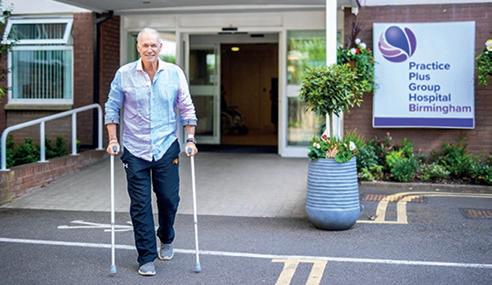
2 minute read
Ask an Expert
Partner and Head of the Private Client team at Amphlett Lissimore, Akilah McEwen, explains gifting a property and what needs to be considered beforehand.

What does it mean to gift a property?
A client will often ask whether they can transfer a property that they own to their children for inheritance tax purposes. They are doing this to reduce the size of the estate when they die. Although this can be done, as solicitors, we always stop to ask why.
Can I gift a property to a Limited Company?
A property can be gifted to an individual, to a trust, or to a Limited company if you don’t continue to retain a benefit from it. This means that you should not continue to receive an income from the property or dividends from the company once it has been transferred. If you continue to receive a benefit, then this will not be a valid gift for the purposes of inheritance tax and the property value will be classed as part of your estate on death.
When a property is gifted, do you pay taxes?
When a property is gifted to an individual or a company, capital gains tax is due. Capital gains tax on residential property is taxed at a rate of 28% on the gain after any allowances are deducted.
When a property is gifted into a trust, there is an immediate charge to inheritance tax on the amount over the nil rate band (£325,000) and inheritance tax is charged at the lifetime rate of 20%. If you die within 7 years from the date of the gift, then the other 20% is due to equal the death rate of inheritance tax. Capital gains tax is charged on disposal of the property by the trust.
What should you consider when gifting a property to a family member?
We always consider why someone would like to gift a property to a family member. What is the reason? Can the goal be achieved in any other way?
When gifting any asset, you should consider your care needs in the future. If you apply for help with care costs later in life, then the local authority has no limitation on how far back they look. If they consider that you have deliberately deprived yourself of assets to avoid paying care fees, then they will include the value of the property in your financial assessment meaning that you may not be entitled to help with care costs from your Local Authority. It is always best to talk through your situation and options with a solicitor to avoid any nasty surprises further on down the line.
How can I leave my property to my child without inheritance tax?
At present, each individual benefits from a ‘tax-free’ allowance of £325,000 which is known as the nil rate band. If you are married and you leave everything to your spouse, then this allowance will be carried over and on the second death the children have use of a nil rate band totalling £650,000. In April 2017 the government brought in the additional allowance for individuals who die, leaving a property, which they have lived in, to their direct descendants (children, grandchildren, stepchildren). This offers a further allowance of £175,000. If you are a couple this totals £350,000.
To summarise the ‘tax-free’ allowances for a couple with children total £1 Million (provided their estate is less than £2.35 Million). This combined allowance covers a large proportion of the population when it comes to inheritance tax.
Is it better to gift a property or leave in a will?
If you own a property that you do not live in and you do not need to collect the rental income from then it is better to dispose of this property during your lifetime, reducing the value of your estate - providing you have sufficient sums to pay the Capital Gains tax. If however, you own one property that you live in then it is far better to gift your property by Will.







